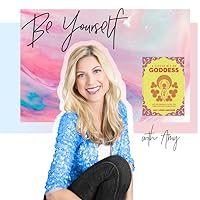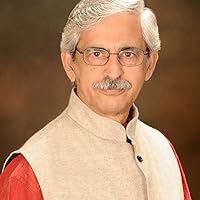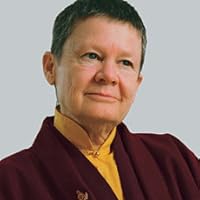Self Compassion Quotes
Quotes tagged as "self-compassion"
Showing 121-150 of 207

“One thing is for sure—you will make mistakes. Learn to learn from them. Learn to forgive yourself. Learn to laugh when everything falls apart because, sometimes, it will.”
― The Art of Talking to Yourself
― The Art of Talking to Yourself

“Taking time to relax every day, spending quality time with friends, and practicing mindfulness are some of the tried and tested ways of developing self-compassion.”
―
―

“You don’t need to wait for someone else to notice your talents before nourishing them. You don’t need others to accept you to feel accepted. You don’t need to wait. You can begin, at any moment, to work on noticing, nourishing, and accepting yourself. You can work on being a better friend to your reflection. You can start listening to yourself like you wish other people would. You can become curious about who you are. You can begin to learn the language of your mind and body so that you can decode it, understand it, speak it. You can work on understanding yourself instead of always trying to make yourself into someone else.”
― The Art of Talking to Yourself
― The Art of Talking to Yourself

“The reality is that there are plenty of trustworthy people in the world rebuilding their lives. It was a very gradual process for me to open up and talk about what was really going on in my recovery. The more I started to take risks by talking to others, however, the more I had an opportunity to exercise boundaries. As I asserted new boundaries, I started to gravitate towards people with integrity, warmheartedness and decency.”
― Drug Addiction Recovery: The Mindful Way
― Drug Addiction Recovery: The Mindful Way

“You’re already stuck with yourself for a lifetime. Why not improve this relationship?”
― The Art of Talking to Yourself
― The Art of Talking to Yourself

“Each wave that rolls onto the shore must release back to the ocean. You are the same. Each wave of action you take must release back to the peace within you. Stress is what happens when you resist this natural process. Everyone needs breaks. Denying this necessity does not remove it. Let yourself go. Realize that, sometimes, the best thing to do is absolutely nothing.”
―
―

“You can choose a love and a life that does not break you. You can claim a softer beauty and a kinder want. Even your animal hunger can soften its rough edges and say a full-throated yes to what is good and kind and holy. Know that insanity is not a prerequisite for passion and that there is another pathway to your art, one that does not demand your pain as payment for its own becoming. Love, it doesn't have to hurt anymore.”
―
―

“Each moment of self-honesty builds intimacy, trust, and compassion. The more you look, the more you’ll love.”
― The Art of Talking to Yourself
― The Art of Talking to Yourself

“For us to feel good emotionally, we have to look after ourselves.”
― Resilient Me: How to Worry Less and Achieve More
― Resilient Me: How to Worry Less and Achieve More

“Words can’t harm you when they don’t mean anything to you.”
― The Disbelief Habit: How to Use Doubt to Make Peace with Your Inner Critic
― The Disbelief Habit: How to Use Doubt to Make Peace with Your Inner Critic

“Let go of rejections and focus on self-reflection. For it is within that you will find the light you seek.”
― The Compassion Revolution: 30 Days of Living from the Heart
― The Compassion Revolution: 30 Days of Living from the Heart

“I believe that the most tragic war of our time is the one within—a war between what we knew as children and what we’ve learned as adults. A war between wisdom and intelligence. A war between the natural colour of our hair and the colour we chemically impose upon it. A war between the manicured hedges and the untouched wilderness. A war between reality and fairy tales. A war between what we could learn about the world and what we are systematically taught. A war that can end in peace.”
― The Art of Talking to Yourself
― The Art of Talking to Yourself

“Be merciful. If it is a mess, let it be a mess. If it feels like you can't do this today, stay put and explore that feeling. Let your mindfulness co-opt everything in your experience. Unless you are in significant emotional or physical pain, stay put with no-matter-whatness. Keep realiging with the intentions of your practice: kindness, diligence, presence, attention, relaxation. Be a work in progress while holding this blueprint. The feeling of its being difficult is actually the sensation of your life evolving. Embrace it.”
― The Monkey Is the Messenger: Meditation and What Your Busy Mind Is Trying to Tell You
― The Monkey Is the Messenger: Meditation and What Your Busy Mind Is Trying to Tell You

“While excellence is a wonderful ideal, perfectionism is a dysfunctional belief system. Many people openly admit that they are perfectionists, which is really an unconscious cry for help. Being a perfectionist is really stating that whatever we attempt to do will never be good enough. This is due to a mistaken belief that we are flawed and unlovable.”
― Drug Addiction Recovery: The Mindful Way
― Drug Addiction Recovery: The Mindful Way

“Find the light within you through meditation and introspection, and you will illuminate your life from within.”
― The Compassion Revolution: 30 Days of Living from the Heart
― The Compassion Revolution: 30 Days of Living from the Heart

“Rejoice in good times, but always remember that, sooner or later, good times will end, as will the bad times.”
―
―

“When we’re putting up the barriers and the sense of “me” as separate from “you” gets stronger, right there in the midst of difficulty and pain, the whole thing could turn around simply by not erecting barriers; simply by staying open to the difficulty, to the feelings that you’re going through; simply by not talking to ourselves about what’s happening. That is a revolutionary step. Becoming intimate with pain is the key to changing at the core of our being—staying open to everything we experience, letting the sharpness of difficult times pierce us to the heart, letting these times open us, humble us, and make us wiser and more brave. Let difficulty transform you. And it will. In my experience, we just need help in learning how not to run away.”
― Practicing Peace in Times of War
― Practicing Peace in Times of War

“The power of self-kindness can help us to heal our chronic shame and self-loathing. In a world that is often mean-spirited and cruel, a daily practice of kindness and warm-heartedness can make all the difference.”
― Drug Addiction Recovery: The Mindful Way
― Drug Addiction Recovery: The Mindful Way

“When we accept that our parents will never be the way we want them to be, we can stop seeking love and acceptance from them and our hearts will become lighter.”
― Parent Yourself Again: Love Yourself the Way You Have Always Wanted to Be Loved
― Parent Yourself Again: Love Yourself the Way You Have Always Wanted to Be Loved

“I began to understand that I could not depend on them to provide me with affirmation and approval. To improve my relationship with my parents, I needed to change. I needed to give myself permission and approval to do what I wanted to do. If my parents couldn’t love me the way I wanted them to love me, then I would have to learn how to love myself.”
― Parent Yourself Again: Love Yourself the Way You Have Always Wanted to Be Loved
― Parent Yourself Again: Love Yourself the Way You Have Always Wanted to Be Loved

“Most of us have an inner parent that doesn’t take care of the inner child’s needs properly. They are more focused on the needs of the ego, such as pleasing other people in order to feel needed, or achieving success and getting recognition from others. This makes the inner parent happy for a short period of time, but it doesn’t last. There is always a feeling of not being fulfilled, no matter how much you achieve, because the inner child’s needs are not being met.”
― Parent Yourself Again: Love Yourself the Way You Have Always Wanted to Be Loved
― Parent Yourself Again: Love Yourself the Way You Have Always Wanted to Be Loved

“We established most of our self-beliefs during our childhood, but they were based on our limited understanding of the world around us. They are either flawed or have become outdated. We can’t take these beliefs at face value anymore.”
― The Disbelief Habit: How to Use Doubt to Make Peace with Your Inner Critic
― The Disbelief Habit: How to Use Doubt to Make Peace with Your Inner Critic

“The truth is everything is impermanent. Nothing stays the same. Flowers wither. Our bodies grow old. Even our thoughts and emotions seem to dissolve over time. When we have a fixed concept of self, we lose ourselves in the past and don’t allow ourselves to just be who we are in the present.”
― The Disbelief Habit: How to Use Doubt to Make Peace with Your Inner Critic
― The Disbelief Habit: How to Use Doubt to Make Peace with Your Inner Critic
“Maybe I was just too young to know how to hold all these balls in the air at once without wanting to cry.”
― Set Free: A Life-Changing Journey from Banking to Buddhism in Bhutan
― Set Free: A Life-Changing Journey from Banking to Buddhism in Bhutan

“Our consciousness is where it's at. What we put our attention to increases. What we appreciate, appreciates. The six inches between our ears are the most powerful part of the human body. I invite you to entertain the idea of allowing your life to get easier by focusing on all the many things you are grateful for in your life. Because that is what you will get more of in your life. And you'll feel better. And better.
And better...is better.”
― The Gratitude Jar: A Simple Guide to Creating Miracles
And better...is better.”
― The Gratitude Jar: A Simple Guide to Creating Miracles

“Simple gratitude practices can be incorporated easily, and I find myself using a handful of them every day. When I let up on the consistency, it shows. My life feels slightly off-kilter. That feeling is useful information and tells me to go back to basics and practice gratitude for all the good, and even what feels like (at the time) the not-so-good, experiences. They all prove useful. When paired with time, it equals perspective, and perspective is a powerful thing because it leads to gratitude.”
― The Gratitude Jar: A Simple Guide to Creating Miracles
― The Gratitude Jar: A Simple Guide to Creating Miracles

“The natural response of children who are being verbally pummeled is to protect themselves, and sometimes the surest means of defense is to have nothing to attack. In other words, children start to believe that self-criticism will prevent them from making future mistakes, thereby circumventing others’ criticism. At the very least, they can blunt the force of others’ criticism by making it redundant. A verbal assault doesn’t have quite the same power when it merely repeats what you’ve already said to yourself.”
―
―

“Maybe self-criticism isn’t the problem, but rather how we react to the criticism that is the problem.”
― The Disbelief Habit: How to Use Doubt to Make Peace with Your Inner Critic
― The Disbelief Habit: How to Use Doubt to Make Peace with Your Inner Critic

“Perception of reality is not the same as reality. What we interpret is not the same as what we see.”
― The Disbelief Habit: How to Use Doubt to Make Peace with Your Inner Critic
― The Disbelief Habit: How to Use Doubt to Make Peace with Your Inner Critic

“Don’t change your self-criticism habit. Change your habitual reactions to self-criticism.”
― The Disbelief Habit: How to Use Doubt to Make Peace with Your Inner Critic
― The Disbelief Habit: How to Use Doubt to Make Peace with Your Inner Critic
All Quotes
|
My Quotes
|
Add A Quote
Browse By Tag
- Love Quotes 97.5k
- Life Quotes 76k
- Inspirational Quotes 73k
- Humor Quotes 43.5k
- Philosophy Quotes 29.5k
- Inspirational Quotes Quotes 27k
- God Quotes 26k
- Truth Quotes 23.5k
- Wisdom Quotes 23.5k
- Romance Quotes 23k
- Poetry Quotes 22k
- Death Quotes 20k
- Happiness Quotes 18.5k
- Life Lessons Quotes 18.5k
- Hope Quotes 18k
- Faith Quotes 18k
- Quotes Quotes 16.5k
- Inspiration Quotes 16.5k
- Spirituality Quotes 15k
- Religion Quotes 15k
- Motivational Quotes 15k
- Writing Quotes 15k
- Relationships Quotes 14.5k
- Life Quotes Quotes 14k
- Love Quotes Quotes 14k
- Success Quotes 13.5k
- Time Quotes 12.5k
- Motivation Quotes 12k
- Science Quotes 11.5k
- Motivational Quotes Quotes 11.5k

